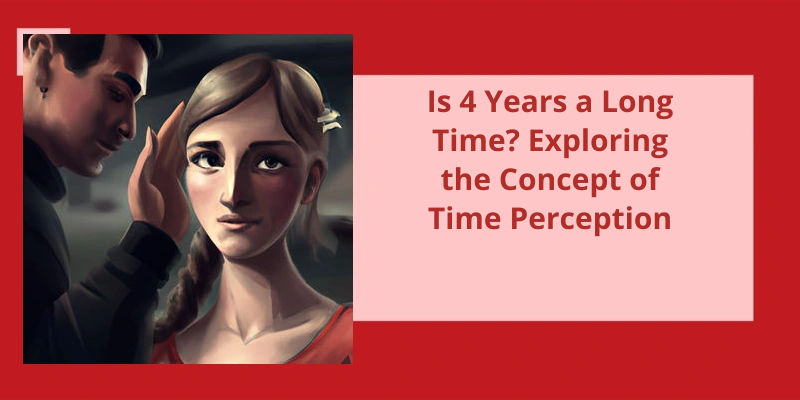It isn’t uncommon for individuals to feel overwhelmed by their thoughts and emotions. In fact, renowned physicist Albert Einstein once said, "The world as we’ve created it’s a process of our thinking. It can’t be changed without changing our thinking." However, the notion that your thoughts can eat you alive is becoming increasingly prevalent in today's world. While having emotions and thoughts is completely natural, allowing them to consume your behavior and decision-making process poses a severe problem. When you start to believe that your inner thoughts and feelings define who you are, it can be challenging to maintain perspective. It’s essential to recognize the potential dangers of ruminating thoughts and combat them before they take over.
Is Eating Me Up Inside a Metaphor?
The phrase “eating me up inside” is often used as a metaphor to express feelings of intense emotional distress or turmoil. This metaphorical image is meant to convey the idea that ones emotions are so consuming they’re literally eating away at them from the inside out. It’s a visceral and vivid image that can signify everything from anxiety and guilt to anger or grief.
Many psychologists believe that the use of metaphorical language is an important part of the human experience. Metaphors allow us to express complex and abstract concepts in ways that are both relatable and powerful. Rather than simply describing feelings, it adds a layer of complexity and depth to our emotions, making them more potent and memorable.
However, there are those who argue that the use of metaphorical language like this can be problematic. It can make it difficult for the speaker to process their emotions in a healthy way, as they’re focusing more on the metaphor than the actual feelings themselves. Additionally, it can be challenging for others to understand the depth of what the speaker is going through, as it relies on a shared understanding of the metaphor being used.
From a linguistic standpoint, it certainly falls under the category of metaphorical language. But the more important question is whether or not it’s serving the speaker well in expressing and processing their emotions. If it’s helping them to articulate their experience and find a way forward, then it’s a valid and useful tool.
It isn’t uncommon to experience intense emotions that seem to consume our thoughts and actions. In such situations, people often use the phrase “my mind is eating me up” to describe the feeling of being overwhelmed by negativity. Although it can be difficult to overcome this state of mind, it’s important to remember that there are ways to address these emotions and take control of our thoughts. Let’s delve deeper into what this phrase means and how we can deal with it.
What Does My Mind Is Eating Me Up Mean?
When we say that our mind is eating us up, it means that we’re being consumed by our emotions and thoughts. It’s when we become so absorbed in negative thoughts and don’t know how to break free from them. This could happen when we experience something traumatic, such as a break-up, the loss of a loved one, or a job loss. It’s like being stuck in a never-ending whirlpool of negative emotions.
Being eaten up by a negative emotion is a challenging situation to be in because it’s challenging to escape from it. We become so consumed by it we cant see anything outside it, and it affects our mental and physical health, leading to anxiety, depression, and in some cases, physical illness. When we’re in this situation, our negative thoughts start to control us, and the more we dwell on them, the more challenging it’s to break free.
It’s essential to understand that negative emotions are a part of life. Everyone goes through tough times. However, when these emotions start to take control of us, it’s time to take action. It’s when we need to reflect on our thoughts and understand what’s driving them. Examining our emotional state in this way can help us identify the root of our pain and suffering.
Once we understand the root cause, we can start to take corrective measures. It could be anything from talking to a friend or therapist, taking up a hobby, or getting involved in physical activity. The key is to find activities that bring us joy and peace of mind. When we do things that make us happy, we start to focus on the positive side of life, reducing the influence of negative thoughts.
It’s essential to recognize when we’re in this situation and take immediate corrective actions. We need to reflect on our thoughts, identify the root cause, and find activities that make us happy to break free from negative thinking.
The phrase “don’t eat me alive” may sound like a literal request, but it actually means to overwhelm or defeat someone thoroughly. It’s a slangy hyperbole that dates back to the early 1900s, and a newer variant is “eat someone’s lunch,” which emerged in the mid-1900s. Both phrases are used to describe a situation in which one person or group is completely outmatched or outperformed by another. But what’re some common situations in which these phrases might be used, and how can you avoid being “eaten alive” by your competitors or adversaries? Let’s explore some examples.
What Does Don’t Eat Me Alive Mean?
“Dont eat me alive” is an expression commonly used to describe overwhelming or defeating someone. It’s slang that’s been in use since the early 1900s as a hyperbole for the experience of being completely outmatched by someone else. The phrase is often used to describe competitive situations where one individual or team is completely overpowered by their opponents.
The allusion to being eaten alive may seem dramatic, but it accurately conveys the sense of being completely consumed by an opponent. The phrase is used to describe situations where someone is lacking the necessary experience or knowledge to compete effectively. For example, an amateur athlete facing a seasoned professional would likely feel like they were being eaten alive.
A newer variant of the phrase is “eat someones lunch,” which dates back to the mid-1900s. This phrase conveys a similar sense of domination and defeat, but with less emphasis on the idea of being consumed. Instead, it suggests that one competitor has completely taken over anothers territory or position. This phrase may be used in business contexts or in politics, where one candidate may be said to have “eaten the others lunch” in a debate or campaign.
Ultimately, both “dont eat me alive” and “eat someones lunch” are colloquial expressions that convey a sense of competitiveness and domination. Whether used seriously or in jest, they reflect our innate desire to come out on top and defeat those who’d stand in our way. While these phrases may seem harsh, they remind us that competition is a natural part of human interaction, and that we must always strive to be our best if we wish to succeed.
Source: Eat someone alive Definition & Meaning | Dictionary.com
Conclusion
It’s essential for everyone to understand that thoughts and feelings are a part of human nature. However, when we allow them to control our behavior and take over our lives, it can have detrimental consequences. As Albert Einstein once famously said, "We can’t solve our problems with the same thinking we used when we created them." By acknowledging that our thoughts and emotions don’t define us, we can gain a better understanding of our experiences and the world around us. Only then can we truly live our lives to the fullest, free from the bondage of our own minds. So, don't let your thoughts eat you alive. Look at them objectively, and remember that you’re in control.






